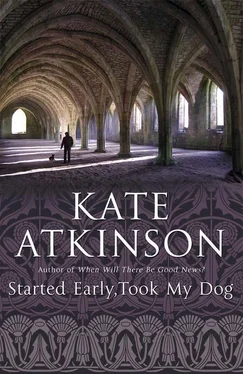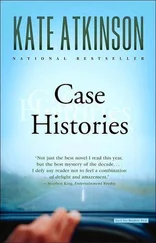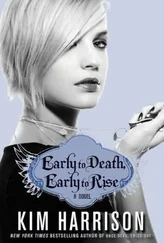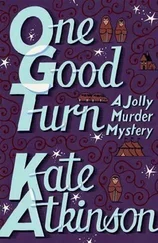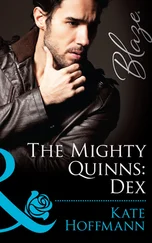He opened the folder expecting to find something surprising – a clue, a secret, even a piece of bureaucratic tedium – but the surprise was that there was nothing at all. Jackson turned the manila folder upside down and shook it, just to be sure.
Nonetheless, despite being empty, the worn beige folder did have something it wanted to say. There was a small typed label affixed to the top left-hand corner. No one used typewriters any more, it was like seeing a message from a primitive culture, a lost time. ‘Carol Braithwaite,’ Jackson read. ‘Case worker: Linda Pallister’ and a date, 2 February 1975. Linda Pallister must have been very young at the time. Jackson would have been fifteen in 1975, a year older than his daughter was now. Getting up to no good, bunking off school, petty thieving, minor vandalism, sinking the good ship Woolworths. It was a long time ago.
And across the front of the folder was written the name ‘WPC Tracy Waterhouse’ again, this one in faded black biro, and another date, 10 April 1975. There was a phone number too, dating from before the national codes were changed. The year was the same year that Hope McMaster was adopted. April was the month that was on her adoption certificate, the one that didn’t exist officially. She had scanned it and emailed it to him, along with her birth certificate, which also didn’t exist officially. If they were forgeries they looked pretty genuine, although he supposed a scan wasn’t the best way of telling. His own forgery of a wife had been in possession of a pretty genuine-looking birth certificate, not such a hard thing to create.
In her appointments diary, Linda Pallister had written, ‘Phone Tracy Waterhouse,’ and here was Tracy Waterhouse’s name thirty-five years ago. Jackson took the photograph out of his wallet and looked at the stocky, wholesome little girl, with cock-eyed bunches. As he always knew it would, the paperclip on the folder fitted exactly over the rusted impression on the photograph.
Schrödinger, whoever he was, and his cat, and anyone else that felt like it, had all climbed inside Pandora’s box and were dining on a can of worms. Jackson felt the beginnings of a headache, another one, on top of the one he already had.

Tracy was surprised that more kids weren’t killed on so-called play equipment. People (parents) seemed blithely oblivious to the peril of small bodies arcing high into the sky on swings they weren’t strapped into, or of the same small bodies launching themselves from the top of a slide when they were knee-high to a gnat. Courtney was astonishingly reckless, a kid without reck was a dangerous thing.
Other children in the play park yelled and screamed and laughed but Courtney was merely determined to test everything, including herself, to the limits, like a dogged little crash-test dummy. There didn’t seem to be much in the way of pleasure involved. Abused kids – and there were many forms of abuse – were frequently shut down and closed off to enjoyment.
It was a beautiful day again and the crowds in Roundhay were already out in force, half-naked white bodies lying like corpses on the green grass, people desperate to get some rays and some fresh air. That’s what parks had always been, breathing spaces for the poor who lived six long days a week in factories. All those little kids, slaves to the machines, their tiny helpless lungs full of damp wool fibres.
Perhaps it was insanity to be out like this, they were exposed to the world and his wife, but then – what better place to hide a child than in plain sight, in a play park surrounded by parents and little kids? People took kids from parks, they didn’t take them to them. And as a bonus Roundhay was not the kind of place that Kelly Cross came to in daylight hours. Plus, Tracy reasoned against reason, it was good for her to practise being a parent in public. Sooner or later she was going to have to come out to the world (and his wife) as a mother, so here she was, Imogen Brown, pushing her little girl Lucy on swings, twirling her on roundabouts and helping her negotiate a variety of apparatus that Tracy couldn’t even give a name to, most of it unrecognizable from the uninspired parks of her own childhood.
Tracy was relieved when Courtney clambered off a giant chicken on springs and announced, ‘I’m hungry.’ Tracy checked her watch, they had been in the play park barely fifteen minutes. It felt like hours. She handed over a banana.
‘OK?’ she asked when it was finished and Courtney gave her a solemn silent thumbs-up sign. She was economical with language, and why not? Perhaps when you were little you thought you might use up all your words at the beginning and not have any left for the end.
Tracy wiped away the green maggot of snot emerging from one of Courtney’s nostrils and congratulated herself on remembering to buy tissues in the supermarket. From her bottomless bag Tracy scavenged the corpse of the doughnut she’d bought in Ainsleys a million years ago, tore it in half and shared it with the kid, sitting on the grass. (‘Cake? Before lunch?’ she heard her mother’s voice say and Tracy answered silently, ‘Yes. What are you going to do about it, you old cow?’)
When Courtney had finished her half of the doughnut she licked each finger religiously before giving another silent thumbs-up to Tracy, and then she took out the contents of the little pink backpack and laid each item, one by one, on the grass for perusal:
the tarnished silver thimble
the Chinese coin with a hole in the middle
the purse with a smiling monkey’s face on it
the snow globe containing a crude plastic model of the Houses of Parliament
the shell shaped like a cream horn
the shell shaped like a coolie hat
the whole nutmeg
a pine cone
The pine cone, Tracy noted, was new. She wondered where it had come from. It was like that game they used to play at children’s parties where you had to remember the objects on a tea-tray. They probably didn’t have parties like that any more. Pin the tail on the donkey, pass the parcel – someone’s dad standing by the record player and lifting the needle on ‘The Runaway Train’ or ‘They’re Changing Guard At Buckingham Palace’. Nowadays they all went to ‘indoor soft play areas’ – Rascals and Funsters – and ran amok. Tracy had been called to one of those places in Bradford once. They thought a kid had disappeared, turned out it was at the bottom of a ball pool and nobody could see it. It was fine, alive and kicking, literally. Paedophile heaven.
Tracy picked out the cream horn-shaped shell and rolled it in her palm. When she was a child her father used to pick up a box of three cream horns from Thomson’s cake shop in Bramley every Friday evening on his way home from work in the town hall. Tracy couldn’t remember when she had last eaten a cream horn, couldn’t remember the last time she had stuck a shell to her own shell-like and listened to the sea. Tracy realized that at some point in this reverie Courtney had surreptitiously retrieved the shell and was packing her treasure away again.
‘Yeah, you’re right,’ Tracy sighed. ‘How about we have our picnic? Heaven forfend that we should go more than ten minutes without eating.’
Tracy had lugged with her an old plaid blanket from the boot of the car. She rolled it out and spread out the picnic fodder they’d bought in the supermarket – tuna rolls, cartons of apple and orange juice, packets of crisps and a bar of Cadbury’s chocolate, the latter neutralized – in Tracy’s mind anyway – by a small bag of carrot sticks. It was the kind of picnic (possibly minus the carrot sticks) that she would have liked when she herself was a child, instead of the cold hard-boiled eggs that her mother used to pack, alongside flabby white-bread sandwiches that had been spread thinly with meat paste before being wrapped – for some arcane reason – in damp lettuce leaves. They had taken these meagre provisions with them on Sunday drives in the family Ford Consul – to Harewood House, to Brimham Rocks or to ‘Brontë country’ – as her mother always familiarly called it, even though she had never read a book by a Brontë, or indeed any book unless it had been helpfully condensed first by the Reader’s Digest . The nearest they ever got to the parsonage was when they once stopped in Haworth village so her father could buy a pack of cigarettes.
Читать дальше
